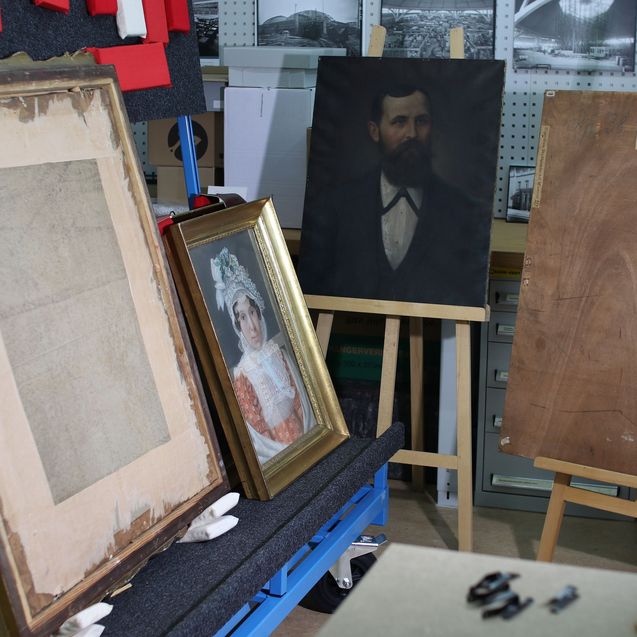Regarding the Provenance of Cultural Assets
Systematic provenance research
Provenance research (from the Latin verb »provenire« = to come forth, come into being) concerns the investigation of the origin of items. Specifically, this means that the museum asks the questions of when and by whom the piece of art was purchased and who was the previous owner. This type of investigation can go back as far as the creation of the artefact. During the research, insights can be gained into the museum’s collection strategy as well as the biography of the people who sold or donated items to the museum or which networks were important.
In an ideal case, a given item’s changes of ownership can be demonstrated without any gaps. This can also provide proof of the authenticity of a cultural asset and, hence, be of fundamental importance for determining its value on the art market and have a positive effect on its price.
Especially in cases in which cultural assets were unlawfully confiscated – in which respect provenance research has focused on the Nazi era for years – the challenge of establishing the origin is important for moral reasons. The »Washington Conference on Holocaust-Era Assets« in 1998 focussed, in particular, on the provenance research regarding Nazi loot and established principles on Nazi-confiscated art. Germany followed this commitment in 1999 with the federal government, the individual states and the leading municipal associations adopting a joint declaration on finding and returning cultural assets confiscated as a result of Nazi persecution.
In the more recent past, two other complex topics were included in the research activities: Cultural and collected assets from colonial contexts and the confiscation of cultural assets in the Soviet occupation zone and the GDR.
The museum carried out provenance research regarding Nazi loot immediately after the adoption of the joint declaration; however, time restrictions did not permit comprehensive and systematic investigations. Occasional restitution claims, exhibition projects (such as »Aryanisation« in Leipzig in 2007) and the investigations on war losses have been recurring topics for the museum in recent years. The museum‘s search announcements can be researched in the Lost Art database.
Moreover, provenance research, which will always remain a fundamental field of research for the museum with a view to inventories from the Soviet Occupation Zone and the GDR, is one of the eight main topics of the City of Leipzig’s »2030 Museum Concept«. Provenance research as a societal task will make a significant contribution to commemorative culture.
News
- Publication - »Vergessene Rück(an)sichten«
- Insights into provenance research work in the museum blog (only german language)
Collection database
Research results in the museum database "Provenienzforschung la04-i2019" (first research project) and "Provenienzforschung la08-i2022" (second research project)
Reported finds
Items already identified as Nazi loot were included in the Lost Art database as reported finds.
Contact
Lina Frubrich
Provenance research
lina.frubrich2@leipzig.de
Tel.: 0341 9 65 13 42

